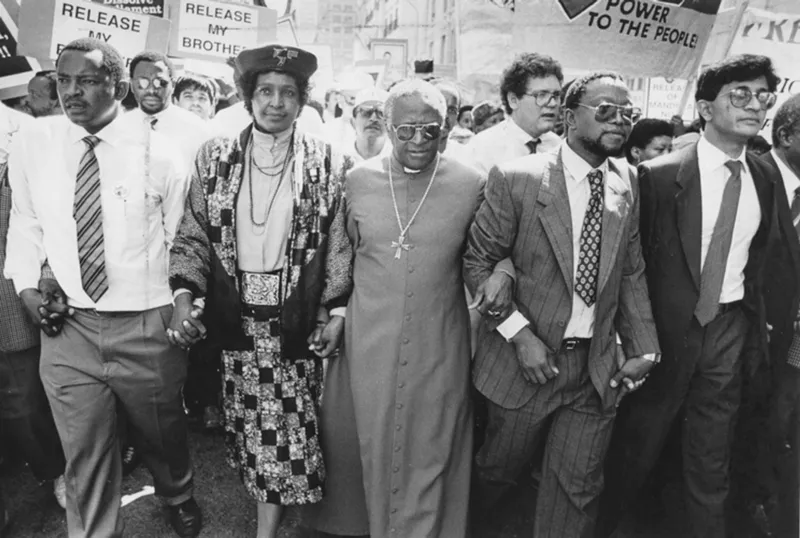Coalitions and Austerity: Navigating South Africa's Economic Challenges
The politics of austerity often protects capital while disciplining labour. A truly democratic fiscal discourse would treat austerity as one option among many, not ...
US, Israel's War on Iran: A Litmus Test for BRICS Solidarity and Unity
The BRICS bloc faces unprecedented challenges as tensions in the Middle East escalate, particularly following a US-Israeli attack on Iran. This article explores ...
The 2026 Budget: A Missed Opportunity for South Africa's Poor
The 2026 Budget reveals a government prioritising the wealthy over the poor, with spending cuts in essential services and a failure to address critical social issues ...
'US, Israel Attacks An Attempt to Destroy the United Nations, International Law'
Let us be clear about what the United States and Israel are pursuing. The US objective is not the security of the American people. The objective is global hegemony. ...
The Struggle for Peace Amidst Ongoing Conflict and Humanitarian Disaster
Explore the complex and tragic situation in South Sudan, where political strife and ethnic conflict have led to a humanitarian disaster affecting millions. This ...
Shifting U. S. Perspectives on China: From Engagement to Managing Competition
Marco Rubio's 2023 Senate speech marks a pivotal shift in U. S. strategy towards China, moving from an idealistic approach to a pragmatic focus on managing competition. ...
The Battle for Johannesburg's Heart and Soul Heating Up
With the 2026 Local Government Election approaching, Johannesburg's political scene is heating up. The ANC's political rivals are ramping up their bids to seize ...
US, Israeli Aggression: A Turning Point for the Middle East
On February 28, the US and Israel initiated military strikes against Iran, escalating tensions in the region. This article explores the implications of this action, ...
Balancing Fiscal Stability, Social Justice a Tough Balancing Act for Godongwana
The 2026 Budget presented by Finance Minister Enoch Godongwana marks a pivotal moment for South Africa, balancing fiscal stability with social justice. This analysis ...
Mnangagwa's Power Grab: Zimbabwe Hurtling Towards A New Constitutional Crisis
Zimbabwe faces a potential constitutional crisis as President Mnangagwa proposes amendments to extend his term and alter the electoral process. This article explores ...
BRICS and the Global South: Convergence, Contradictions, and Future Directions
Explore the evolution of BRICS as it navigates the complexities of global geopolitics and the aspirations of the Global South. This article delves into the bloc's ...
Budget's Ideological Thrust Conflicts with Developmental State Goals
The 2026 Budget Vote presents a crucial opportunity for South African municipalities to address deep-rooted issues of service delivery, inequality, and corruption. ...
Budget 2026: COSATU Laments Missed Opportunity for Economic Growth
COSATU criticises the government's 2026/27 Budget for failing to address critical issues such as unemployment, economic growth, and public service funding, while ...
Renaming the University of the Western Cape: The Case for Allan Boesak University
This article argues for renaming the University of the Western Cape to Allan Boesak University, exploring the ethical, historical, and political implications of ...
Will the 2026 Budget Reinforce the Status Quo or Drive Transformative Growth?
The Minister of Finance Enoch Godongwana faces a pivotal decision in the 2026 National Budget: continue with the status quo or embrace a transformative growth agenda. ...
Budget 2026: Is There Political Will To Break From Neoliberal Orthodoxy?
The 2026 Budget Vote poses critical questions about the government's ability to align fiscal policies with ambitious developmental goals. As the nation grapples ...
Jesse Jackson Helped Create the America Trump Wants to Destroy
This article explores the profound impact of Jesse Jackson on American politics and society, highlighting his role in advocating for minorities and shaping the political ...
Ramaphosa Silent On Holding The Political Elite Accountable
President Cyril Ramaphosa's recent State of the Nation Address raises questions about the effectiveness of targeting municipal officials in the fight against corruption. ...
Godongwana's Moment of Reckoning In Reversing Economic Fragility
Enoch Godongwana's upcoming 2026 Budget Speech is set against a backdrop of economic fragility and opportunity. This article explores the key challenges facing South ...
